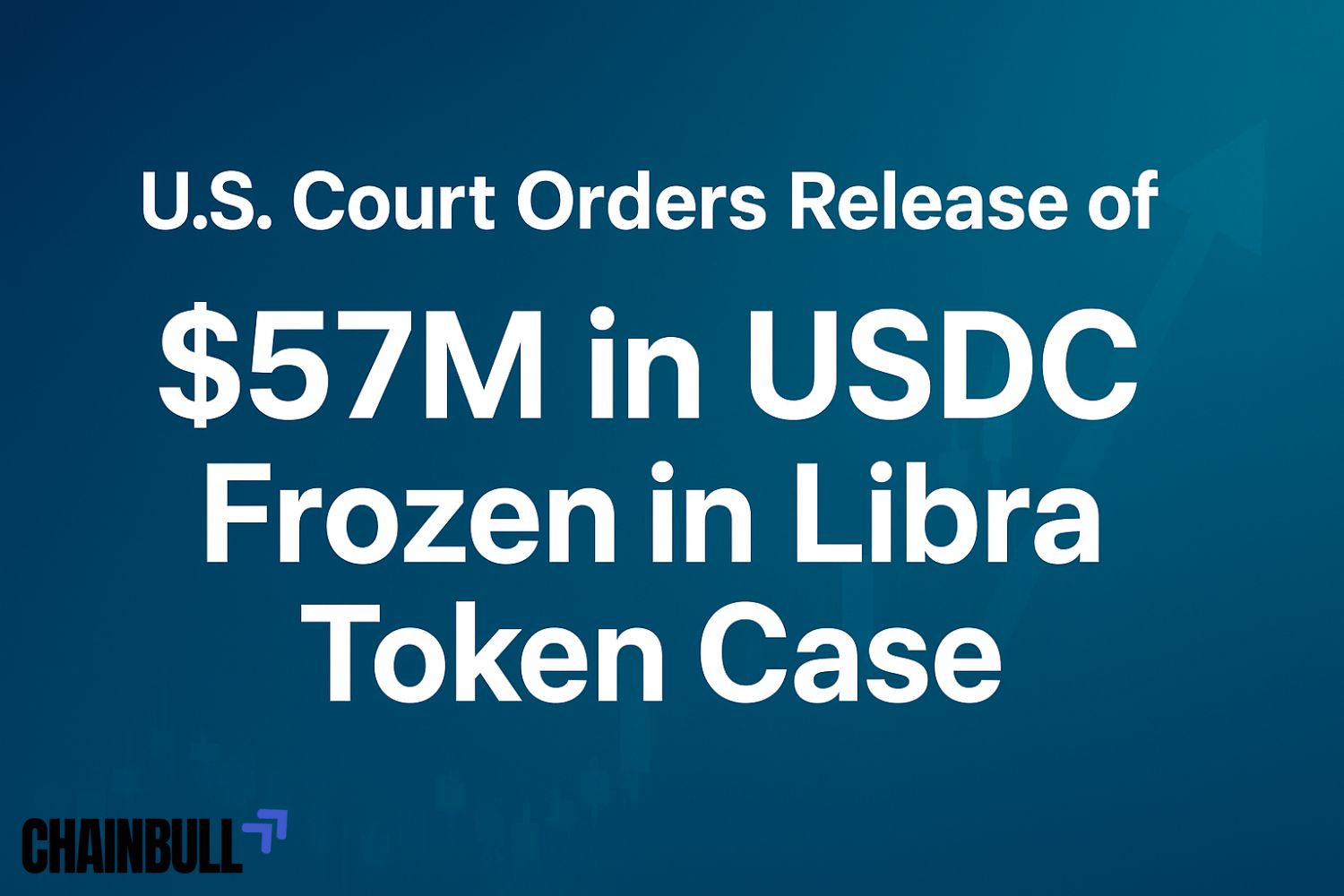

A U.S. federal judge ordered the release of $57.6 million in USDC, which was frozen since May in a class-action suit related to the Libra controversial meme token. Southern District of New York Judge Jennifer L. Rochon decreed that the defendants, crypto marketer Hayden Davis and Ben Chow, are in adherence with the court proceedings and have shown no intention to dissipate frozen assets.
In May, a Manhattan federal court issued a freeze on two wallets that contained about $13 million and $44 million in USDC, respectively. The wallets were from Davis, the head of Kelsier Labs, and Chow, the ex-CEO of decentralized exchange Meteora. They face accusations of deceiving investors about the swift collapse of the Libra token.
Judge Rochon found no evidence that Davis or Chow attempted to conceal or transfer the money. The assets had not been touched, and the plaintiffs could not show “irreparable harm” that warranted keeping them frozen. The judge added that if the plaintiffs succeed, the assets are still up for compensation.
She also had doubts about the prospects of the lawsuit’s ultimate success, but did not throw the case out altogether.
Legal counsel for Chow, Samson Enzer of Cahill Gordon & Reindel LLP, asserted that the plaintiffs’ claims are untested and meritless. The defense suggested that motions to dismiss the lawsuit are forthcoming.
It debuted in February 2025, and the Libra token skyrocketed practically overnight. Argentine leader Javier Milei’s seal of approval boosted it, reaching eye-popping valuations before plummeting by over 90% within a day. Its sudden collapse triggered suits claiming that Davis and Chow had orchestrated a quintessential “rug pull” and raised eyebrows about Milei’s endorsement of the token.
The Anti-Corruption Office of Argentina had looked into President Milei’s participation, whose findings exonerated him of ethical misconduct. It states that his social media promotion of Libra represented his own opinion and not any official support or abuse of official assets.
Many people criticized the verdict because it encourages future meme coin scams.
The case underscores a judicial reluctance to maintain asset freezes. There is no clear proof of irreparable harm or loss, and it also sets a precedent for asset unfreezing in similar crypto-related litigation.
With almost $58 million now available to the defendants, attention in the markets is on the next round of legal proceedings. The plaintiffs’ chance at vindicating their claims and recovering restitution is still in doubt. The verdict opens up renewed discussion about regulatory regimes and investor protections in the turbulent memecoin sector.
Get the Full Crypto News on Chainbull !
Enter your email → Get instant download.
